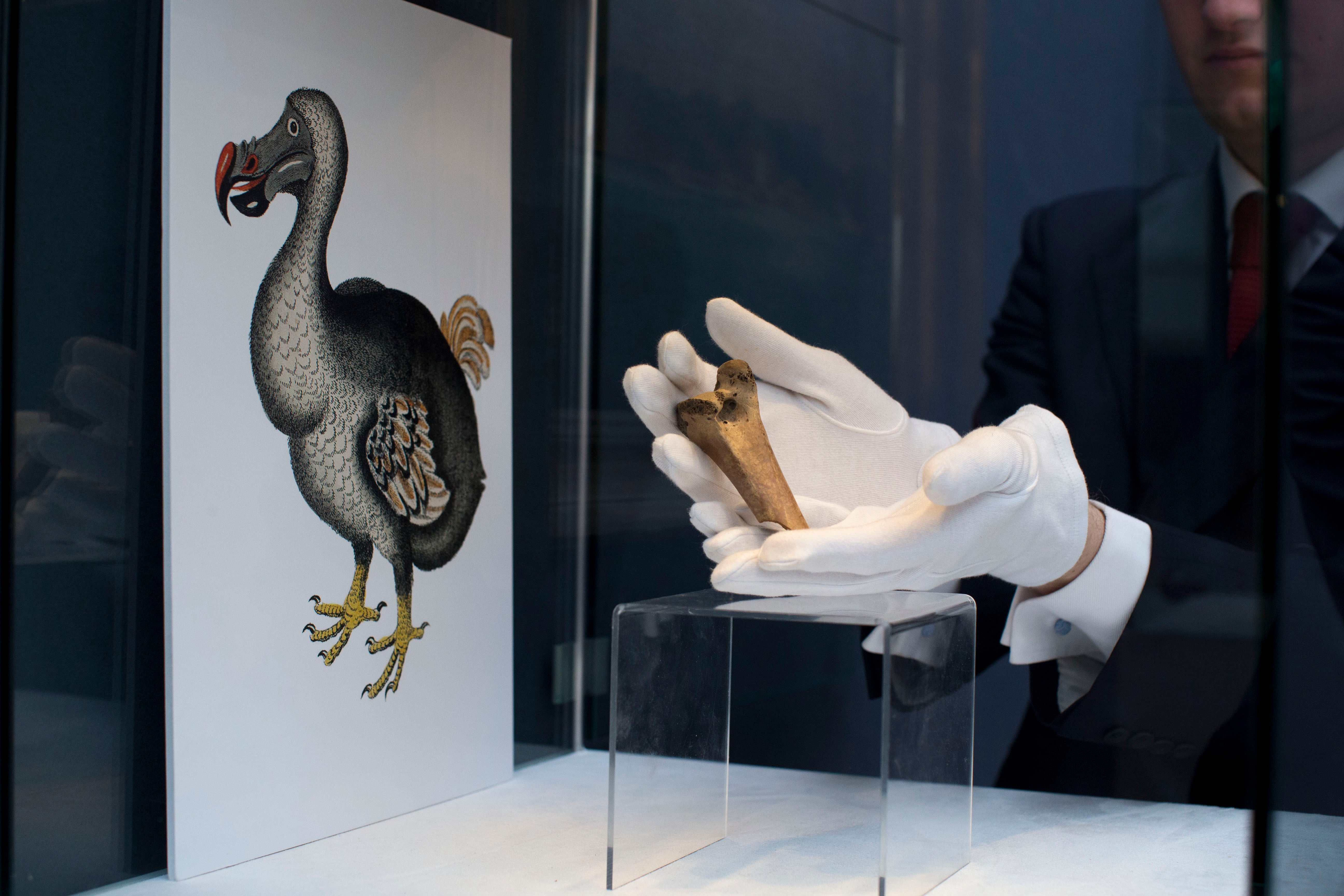Scientists vow to ‘de-extinct’ the dodo bird
Colossal Biosciences has already announced plans to bring back to life the woolly mammoth and Tasmanian tiger
Your support helps us to tell the story
From reproductive rights to climate change to Big Tech, The Independent is on the ground when the story is developing. Whether it's investigating the financials of Elon Musk's pro-Trump PAC or producing our latest documentary, 'The A Word', which shines a light on the American women fighting for reproductive rights, we know how important it is to parse out the facts from the messaging.
At such a critical moment in US history, we need reporters on the ground. Your donation allows us to keep sending journalists to speak to both sides of the story.
The Independent is trusted by Americans across the entire political spectrum. And unlike many other quality news outlets, we choose not to lock Americans out of our reporting and analysis with paywalls. We believe quality journalism should be available to everyone, paid for by those who can afford it.
Your support makes all the difference.Scientists have launched a project to “de-extinct” the famously dead dodo after 361 years and reintroduce the species back to the wild.
Colossal Biosciences, the company which also wants to revive the woolly mammoth, says it will attempt to bring the extinct bird back to life after raising $150m in funds.
The company, which was founded in 2021 by Harvard geneticist Goerge Church and entrepreneur Ben Lamm, announced its plans for the flightless bird on Tuesday.
“The Dodo is a prime example of a species that became extinct because we—people—made it impossible for them to survive in their native habitat,” said Beth Shapiro, a board member on Colossal’s Scientific Advisory Board and lead paleogeneticist on the project. “Having focused on genetic advancements in ancient DNA for my entire career and as the first to fully sequence the Dodo’s genome, I am thrilled to collaborate with Colossal and the people of Mauritius on the de-extinction and eventual re-wilding of the Dodo. I particularly look forward to furthering genetic rescue tools focused on birds and avian conservation.”
The dodo is the third animal along with the mammoth and Tasmanian tiger, that Colossal Biosciences hopes to bring back from the dead.
The dodo, a three feet tall bird weighing up to 39 pounds, used to live on the Indian Ocean island of Mauritius before becoming extinct.
Colossal says that it now has 40 scientists working on its woolly mammoth de-extinction project, which it describes as “the cuddly version of a velociraptor.”

The company wants to fuse the DNA of mammoths that were frozen in ice for thousands of years with that of modern Asian elephants.
Colossal says that its work is also important for making advances in the medical and environmental fields.
“Genetic technologies are already protecting us and our food sources from infectious and inherited diseases,” said George Church. “A society embracing endangered and extinct gene variants is one poised to address many practical obstacles and opportunities in carbon sequestration, nutrition, and new materials.”



Join our commenting forum
Join thought-provoking conversations, follow other Independent readers and see their replies
Comments